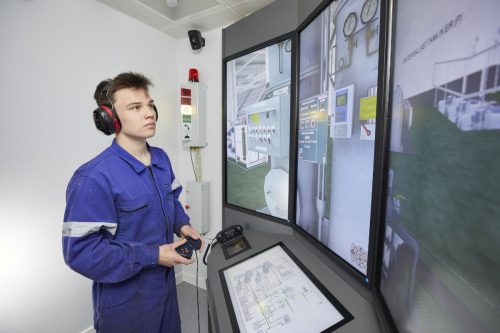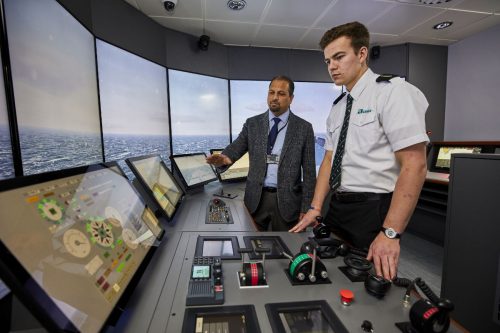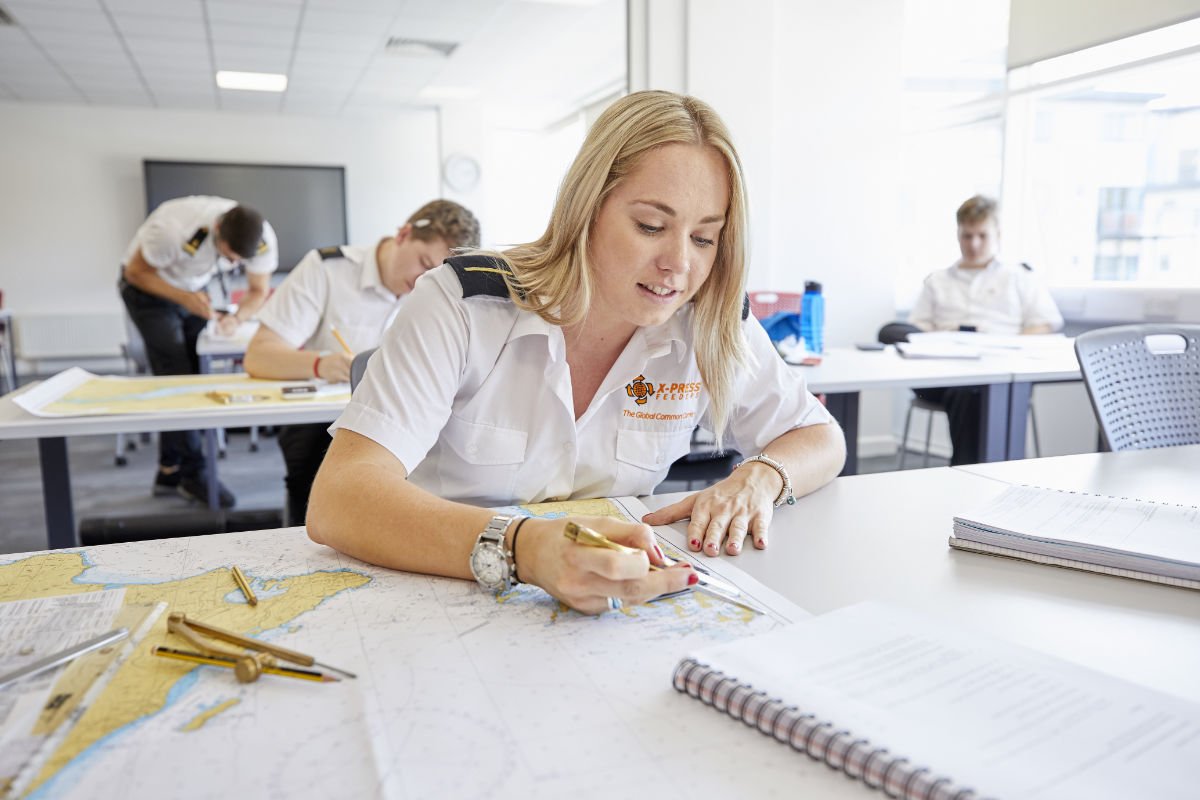The Maritime Skills Commission
Graham Baldwin, Chair of the MSC, explains the organisation’s purposes and projects. Photographs by kind permission of Warsash Maritime School, Solent University
Maritime UK and the Department for Transport have established a Maritime Skills Commission (MSC) to lead the sector’s work in ensuring that the maritime sector has a pipeline of talented people to serve all parts of the sector. The Commission was first announced in the Department of Transport’s Maritime 2050 strategy in January 2019. The Minister’s Tasking Letter of 1 July 2020 stated that the Commission’s job is to:
- understand the skills needs of the sector, including the effects of technological change, and to make recommendations for action
- ensure that no part of the sector suffers from serious skills shortages or skills gaps
- ensure that the sector has the apprenticeships and qualifications it needs
- ensure the sector has the training provision it needs, (including the use of technology to engage learners and keep costs down)
- provide employers and individuals with clear information about career paths and re-training options
- ensure that employers have good quality recruits for their vacancies through effective promotion of maritime careers
- increase exports of maritime education and training.
The Commission reports jointly to the Maritime Minister and to Maritime UK’s National Council. Maritime UK’s Diversity in Maritime Taskforce and Careers Taskforce work closely with the MSC to ensure that their work programmes reflect its latest labour market intelligence.
The first task for the Chair was to undertake a detailed mapping exercise to ensure that the MSC had coverage across the five sectors covered by Maritime UK: shipping, ports, professional services, marine engineering and science, and marine leisure. It was imperative that the MSC should have the right balance of geographical coverage, seniority, gender, knowledge of HR and current skills systems, as well as people who understand the impact of technical changes (automation, digitisation, etc.) and fresh perspectives. Programme management of the MSC is provided through a dedicated resource at Maritime UK.
The first meeting of the 18 commissioners plus the Chair was held on 2 July 2020 to discuss the MSC’s aims and a proposed Scheme of Work. The Commission released its first Labour Market Intelligence Scoping Report in August 2020, and its first annual report in October.
Projects

The Seafarer Cadet Review. Led by commissioner Brian Johnson, CEO of the Maritime and Coastguard Agency, this review was undertaken at the Minister’s request in view of the fact that the number of UK Merchant Navy officers being trained and employed has steadily declined over several decades. Refreshing the seafarer training system will allow the well-regarded UK maritime training sector to adapt to the pace of change required and to strengthen its position in the international education arena. The Review’s recommendations were released on 24 June 2021.
Digital Learning. Every training provider had to adapt fast to the restrictions imposed because of Covid-19. Most made extensive use of digital technology to keep learners learning. This emergency response has almost certainly hastened widespread acceptance of the use of digital technology in learning, by providers and by learners. The Commission consolidated the gains by capturing and sharing the lessons learned in an initial report, and through a webinar in December 2020.
Exporting Maritime Education and Training. One of the Commission’s objectives is to ‘increase exports of maritime education and training’. The project began by convening an initial meeting of organisations which already export, or are keen to do so, with colleagues in the Department for International Trade, whose purpose is to promote exports. This was shortly followed by a webinar to discuss the project in more depth and launch a directory.

Future Ports Workforce. The modern port is significantly different from ports in the past. It is increasingly shaped by forces such as the globalisation of supply chains, automation, digitisation and also by imperatives such as sustainability. We expect these trends not only to continue but to accelerate.
This changing business and organisational environment has important implications for people working in the sector. While there will be important advantages in the port workplace of the future, such as improved safety and greater opportunities to deploy new sources of talent, and while some (perhaps many) future roles are currently unknown, there will undoubtedly be substantial challenges to be faced, in respect of staffing and – crucially – in making the transition in a timely, efficient but also responsible manner.
The major port operators are undertaking new research to explore the three interlinked key dimensions of change [What, How and Where], the relationships between these dimensions, and solutions for resolving the problems raised by change. Such solutions are likely to be needed at both sector and company level, and may have implications beyond the sector, for example, for government policy. The main questions are, ‘What will the likely future ports workforce and ways of working look like, and how can the sector make the transition from its current position?’ The project will include a mixture of desk research and structured interviews.
Careers into Maritime Ashore. This project has created a new qualification that equips adult re-trainers, as well as school and college leavers, for shore-based maritime roles. The qualification is designed to provide a stepping-stone allowing people to gain a basic understanding of the various roles available and to help them make informed choices about working in the industry.
Future projects will be focused on green skills, soft skills and behaviours, and autonomous vessels, as well as on delivering the recommendations outlined in our current projects.
Professor Graham Baldwin is Vice-Chancellor of the University of Central Lancashire. He was appointed Chair of the Maritime Skills Commission in January 2020. For more information about the MSC, visit: www.maritimeuk.org
